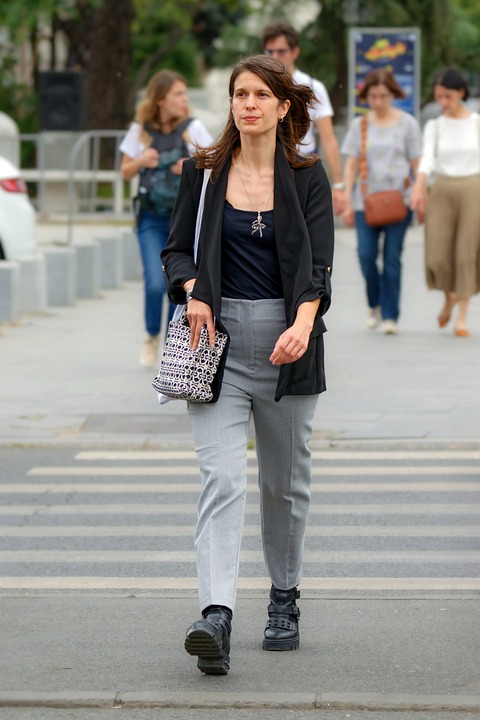Decluttering for Happiness: How a Minimalist Lifestyle Can Improve Your Mental Health
Are you tired of feeling overwhelmed by the clutter around you? Do you dream of a simpler, more peaceful life? The benefits of a minimalist lifestyle go beyond just having more space. Decluttering can have a profound impact on our mental health, reducing stress, anxiety, and even depression. In this article, we’ll explore the ways in which a minimalist lifestyle can improve your mental well-being and provide you with tips to get started on your journey to a clutter-free life.
The Connection Between Clutter and Mental Health
Research has shown that clutter can have a profound impact on our mental health. In fact, a survey conducted by the American Psychological Association found that 63% of participants reported that cluttered living spaces contribute to their stress levels. This is because clutter can:
- Create feelings of overwhelm and anxiety
- Make it difficult to focus and concentrate
- Foster a sense of chaos and disorganization
- Contribute to feelings of guilt and shame around possessions
- Interfere with our ability to relax and unwind
On the other hand, a clutter-free environment can have a profound impact on our mental well-being. A study by the University of California, Los Angeles (UCLA) found that simply decluttering a small area of our living space can:
- Reduce feelings of stress and anxiety
- Improve our mood and overall sense of well-being
- Increase our sense of control and organization
- Help us feel more relaxed and calm
The Benefits of a Minimalist Lifestyle
A minimalist lifestyle is not just about getting rid of stuff; it’s about creating a more intentional, simplified way of living. By embracing a minimalist approach, you can:
- Reduce financial stress: By living within your means and avoiding impulse purchases, you can reduce financial stress and anxiety.
- Save time: With fewer possessions to manage, you’ll have more time for the things that matter most.
- Improve your relationships: A clutter-free home can lead to more meaningful relationships and a greater sense of connection with others.
- Increase your sense of freedom: Living with less can bring a sense of liberation and freedom from the burden of material possessions.
Tips for Decluttering and Creating a Minimalist Lifestyle
So, how do you get started on your journey to a clutter-free life? Here are a few tips:
- Start small: Begin with one area or room at a time to help you focus your efforts and build momentum.
- Practice the "one in, one out" rule: For every new item you bring into your home or life, get rid of an old one.
- Be intentional: When shopping, ask yourself if each item serves a purpose or brings you joy. Only keep what truly adds value to your life.
- Streamline your digital life: Consider decluttering your digital files, emails, and social media accounts to reduce digital clutter.
- Create a home for everything: Assign a designated spot for each item, making it easier to find what you need and maintain your space.
Incorporating Minimalism into Your Daily Life
Minimalism is not just about the things you own; it’s about the way you live. Here are a few ways to incorporate minimalism into your daily life:
- Start a daily meditation practice: Take a few moments each day to focus on your breath, letting go of distractions and worries.
- Practice mindful eating: Eat slowly, savoring each bite, and avoid distractions like screens during meals.
- Limit your screen time: Set boundaries around your screen time, allowing yourself time to relax and unwind without the constant gaze of screens.
- Prioritize self-care: Make time for activities that nourish your mind, body, and soul, such as exercise, reading, or spending time in nature.
Conclusion
Decluttering and embracing a minimalist lifestyle is not just about getting rid of stuff; it’s about creating a more peaceful, intentional way of living. By simplifying your space and streamlining your belongings, you can reduce stress, increase your sense of calm, and cultivate a greater sense of freedom. Remember, the journey to a clutter-free life is not about perfection; it’s about progress, one step at a time.
FAQs
Q: What is the first step in decluttering my home?
A: Start by sorting items into three piles: keep, donate/sell, and discard. Be honest with yourself about which items you truly need or use.
Q: How do I avoid falling back into old patterns of clutter accumulation?
A: Set boundaries and routines for yourself, such as only shopping once a month or implementing a "one in, one out" rule.
Q: What if I’m not sure where to start?
A: Begin with a small area, like your desk or a single shelf. As you declutter, take notice of the sense of accomplishment and the space you’re creating.
Q: Can I still be a minimalists if I have a large family or many pets?
A: Absolutely! Minimalism is about intention and simplicity, not about the size of your family or the number of pets you have. Find ways to simplify and streamline your life that work for you and your loved ones.
Q: How long will it take to declutter my entire home?
A: It’s different for everyone, but aim to dedicate a few hours each week to decluttering and organizing. Break it down into smaller tasks, and you’ll make progress without feeling overwhelmed.


